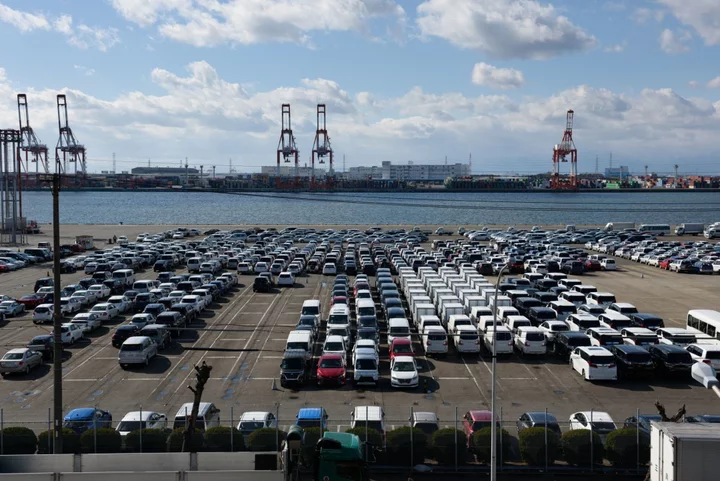BP Plc and Chubu Electric Power Co.’s carbon capture and storage project for Japan’s busiest port could be expanded into the largest such facility in the country, potentially requiring trillions of yen in investment, according to an executive at the Japanese utility.
The project for the port of Nagoya was originally targeted to capture 3 million tons of emissions annually, but the companies will consider expanding it to 5 million tons in order to achieve economies of scale, Hiroki Sato, Chubu Electric’s senior managing executive officer, said in an interview.
The firms, which signed an agreement in February, will begin a feasibility study this month for the project. It would connect power plants and factories in Nagoya with pipelines to capture emissions from typically hard-to-abate sectors.
It may require “trillions of yen” in investment, according to Sato, including costs for equipment installations as well as monitoring for leaks. “Support from the government is absolutely necessary moving forward,” he said. (One trillion yen is equal to about $7 billion.)
The project comes as nations and companies around the world eye carbon capture technology as a tool to achieve emission reduction targets. In the US, the Inflation Reduction Act is boosting support for industrial projects to adopt it, while countries like Germany that have been skeptical of the technology are also embracing it to decarbonize industries such as steel and petrochemicals.
Related story: Carbon Capture: The Vacuum the Climate May Depend On: QuickTake
Critics of carbon capture say the technology is too expensive, while others point out the risk of deploying such projects will prolong the use of fossil fuels.
The feasibility study for BP and Chubu Electric’s project will run for about a year.









